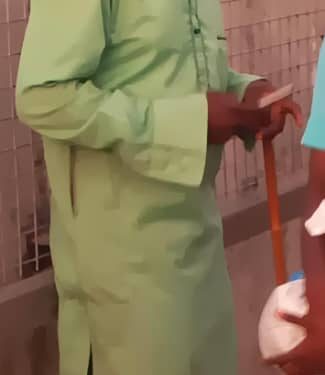Kadiri Yusuf, 40, navigates Lagos’ bustling streets with ease, despite being blind. His white cane taps out a rhythmic path, guiding him through the city’s obstacles. But Kadiri’s greatest challenge lies not in his disability, but in providing for his family.
A father of three, Kadiri lost his sight in a tragic accident five years ago. His wife, Aisha, and children, Fatima, Ali, and little Hassan, rely on him for support.
“I won’t let my blindness define me,” Kadiri declares, his voice firm. “My family needs me, and I’ll do whatever it takes.”
Kadiri’s day begins at dawn, begging on Lagos streets. Passersby often ignore him, but he persists. “Every coin counts,” he says.
Aisha, his wife, manages their small trading business, selling vegetables at the local market. “Kadiri’s determination inspires me,” she says. “We face hardships, but together, we overcome.”
Nigeria’s social services often fall short for people with disabilities. Kadiri’s story highlights the need for inclusive support.
“Kadiri’s resilience is remarkable,” says Folake Ogunbayo, a local community health worker. “He’s an inspiration to our community.”
Kadiri’s unwavering resolve shines brighter than his darkness. “My family’s future is my guiding light,” he says.
This story was written by Constance Ekeh, MSc Student of Mass Communication (2023/2024), University of Lagos, following the training on Disability Reporting facilitated by Blessing Oladunjoye, Publisher of BONews Service.

